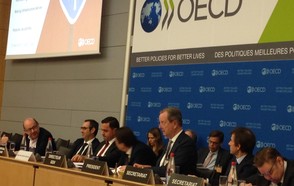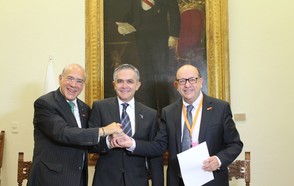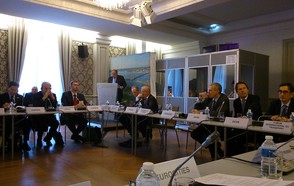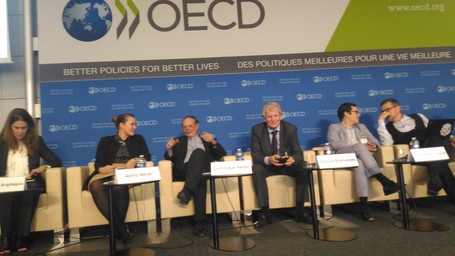
Following up the initiative launched during the preparation of Habitat III in 2015, the 2nd International Conference on National Urban Policy (IC-NUP), organized by the OECD and UN-Habitat with the support of Cities Alliance, was held at the OECD Conference Centre in Paris on 15-18 May 2017. It brought together more than 300 policy makers, local and national government officials, and non-governmental actors, as well as experts working in areas of urban policy from more than 35 countries.
As expressed in the opening remarks by the OECD Secretary General, Ángel Gurría, and the Deputy Director of UN-Habitat, Aisa Kirabo, the goal of the conference was to assess and promote NUPs as a key lever in the realization of the New Urban Agenda and the other global development agendas, less than a year after Habitat III in Quito. The representative of the French Foreign Office highlighted the “great progress achieved during the last year in the recognition of local authorities” in international fora. Claire Short, on behalf of Cities Alliance, called for a “real partnership between all levels of governments and civil society” focused on implementation.
As stressed in the Global Report on National Urban Policies that was launched during the opening session, fewer than a quarter of UN member states have already developed some form of NUP to date, and most of these are still at an early stage: “NUPs must make all governments work for cities and cities work for the future”, added Susan Parnell in her keynote speech. 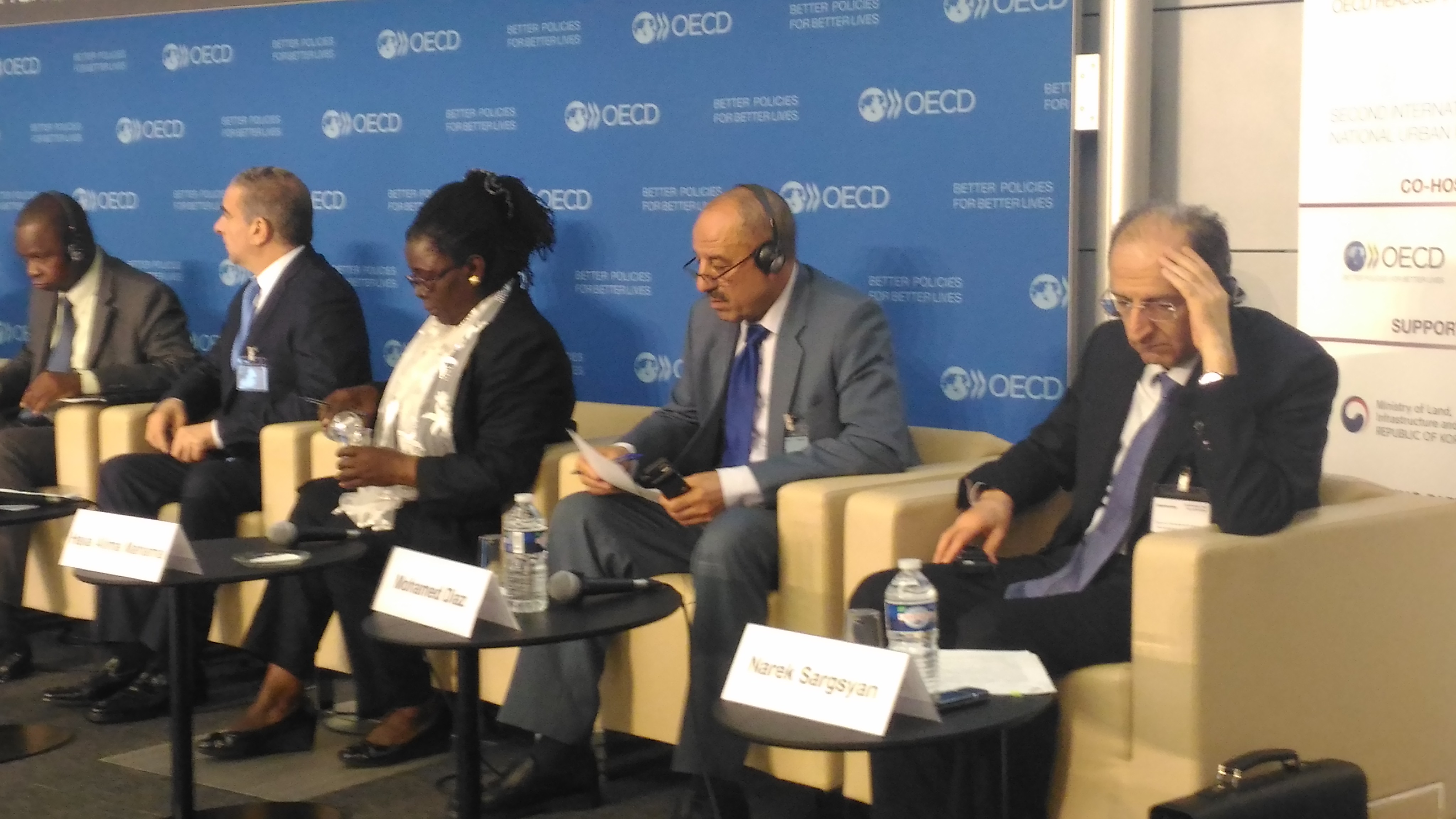
UCLG, as one of the supporting partners, participated with a delegation of local and regional authorities. Five mayors, one governor and more than 10 ministers and high-level officers participated in the Mayors and Ministers Dialogue and the Stakeholder Dialogue, which also involved the private sector, academia, national governments and cooperation agencies.
Speakers from both developed and developing countries recognized the growing relevance of urban policies in national agendas; the need for more integrated national urban strategies that coordinate better with national development plans and key investments; and the need to strengthen financial capabilities for both national and local governments. Several countries presented their own experiences in national urban forums or national urban councils and committees, highlighting their value in supporting multilevel and multistakeholder dialogues. Diversity in institutional traditions and constraints, however, has made the interpretation of these concepts highly dependent on context: in many countries urban plans are still defined or approved directly by national governments and coordination is only limited to dialogue with national ministries. In his presentation, Shlomo Angel presented a few examples of the disastrous results of certain centralized approaches (e.g. ghost ‘new cities’ in the periphery of a metropolitan capital like Luanda, in Angola).
In their interventions, mayors called for a more bottom-up approach to the definition of urban strategies: simplified legal frameworks, adequate decentralization of resources and powers, better structured national/local partnerships, and especially innovation. Mayors from metropolitan areas advocated for more comprehensive planning and for polycentric city development approaches. They called for more cohesive and coordinated urban regions and stressed the importance of consultations on regional planning to strengthen urban-rural linkages. They argued for more balanced territorial development, so as to reduce the ever‑increasing inequalities among different types of urban settlements and between territories.
The morning of the second day was dedicated to thematic parallel sessions, co-organized by several partners, among which were C40, the Istanbul Metropolitan Municipality, a network of land and urban planning institutions (including the UCLG Committee on Urban Strategic Planning), the European Commission, UNECE, the World Resources Institute, 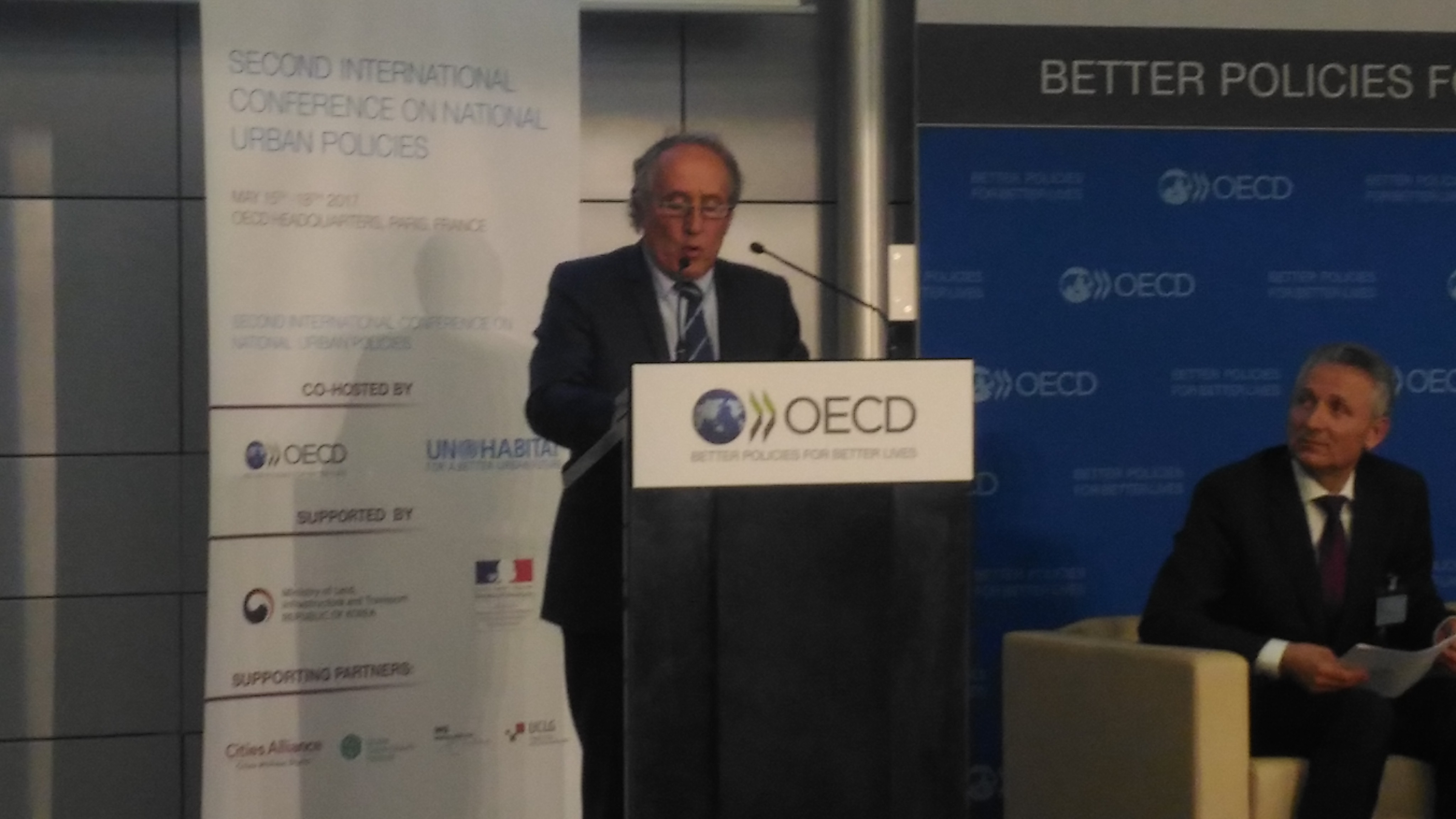 and the Global Green Growth Institute. Over 30 national experiences with NUPs were presented in parallel sessions in the afternoon, including accounts from Africa, Asia, Europe, Latin America and MEWA, as well as a few sub-national regions such as Catalonia and the Niger State in Nigeria.
and the Global Green Growth Institute. Over 30 national experiences with NUPs were presented in parallel sessions in the afternoon, including accounts from Africa, Asia, Europe, Latin America and MEWA, as well as a few sub-national regions such as Catalonia and the Niger State in Nigeria.
In parallel with the Country Experiences Sessions, the agenda included a closed meeting on the afternoon of 16 May to discuss the implementation of the National Urban Policy Programme (NUPP). This joint programme was launched during Habitat III by UN-Habitat, OECD and Cities Alliance to support the implementation of the New Urban Agenda. Its objective is to develop a knowledge-based platform that facilitates exchanges and the delivery of technical assistance to enhance policy-makers’ capacities, provide direct support to stakeholders involved and monitor the progress of NUPs. The meeting was chaired by Joan Clos (UN-Habitat) and Joaquim Oliveira (OECD) and brought together about 40 representatives from member states (Argentina, Chile, Cuba, Germany, Korea, and Japan), local governments (UCLG), international institutions (European Commission, UNECE, UNESCWA), and foundations (Ford, Word Resources Institute), as well as academia and think tanks (IHSS, Coalition for Urban Transition, supported by C40). Many of them expressed their commitment to keep contributing to the implementation of the NUPP in the future.
Following the Bogota Commitment, local and regional governments need to be active and demanding partners in this initiative, so as to promote coherent and integrated national urban and regional policies. The participation of LRGs in the IC-NUP was a demonstration of this commitment, however further steps in this direction will be needed for the process to become more inclusive and co-owned.
Photo credit: @UCLG/Edgardo Bilsky











